Industry news
What are certificates for biodegradable plastic bags?
Certifications for biodegradable plastic bags can vary depending on the country or region. Here are some commonly recognized certifications:
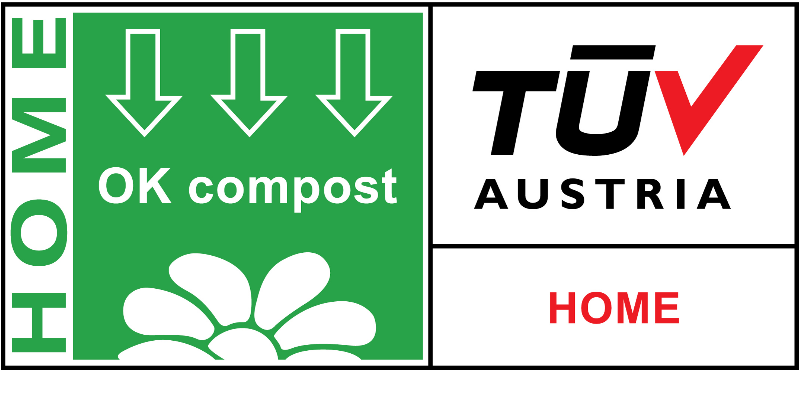
OK Compost:
The OK Compost certificate is issued by TÜV Austria, an independent certification body, and it verifies that a product is compostable according to specific criteria. The certificate is commonly used to indicate compliance with the European standard EN 13432 for compostability.
The OK Compost certificate confirms that a product, such as a plastic bag, has been tested and meets the requirements for compostability. It assures consumers and businesses that the product can undergo composting and will biodegrade in an industrial composting facility.
To obtain the OK Compost certificate, a plastic bag must demonstrate the following:
1. Biodegradation: The bag should biodegrade under controlled composting conditions, breaking down into natural elements such as carbon dioxide, water, and biomass.
2. Disintegration: The bag should disintegrate into small pieces in a composting environment within a specified timeframe.
3. Ecotoxicity: The bag should not release toxic substances in quantities that could harm the environment during composting.
By carrying the OK Compost logo or referencing the OK Compost certification, manufacturers and suppliers of plastic bags communicate that their products have undergone testing and meet the necessary standards for compostability. It helps consumers and businesses make informed choices when selecting packaging materials that align with their sustainability objectives.
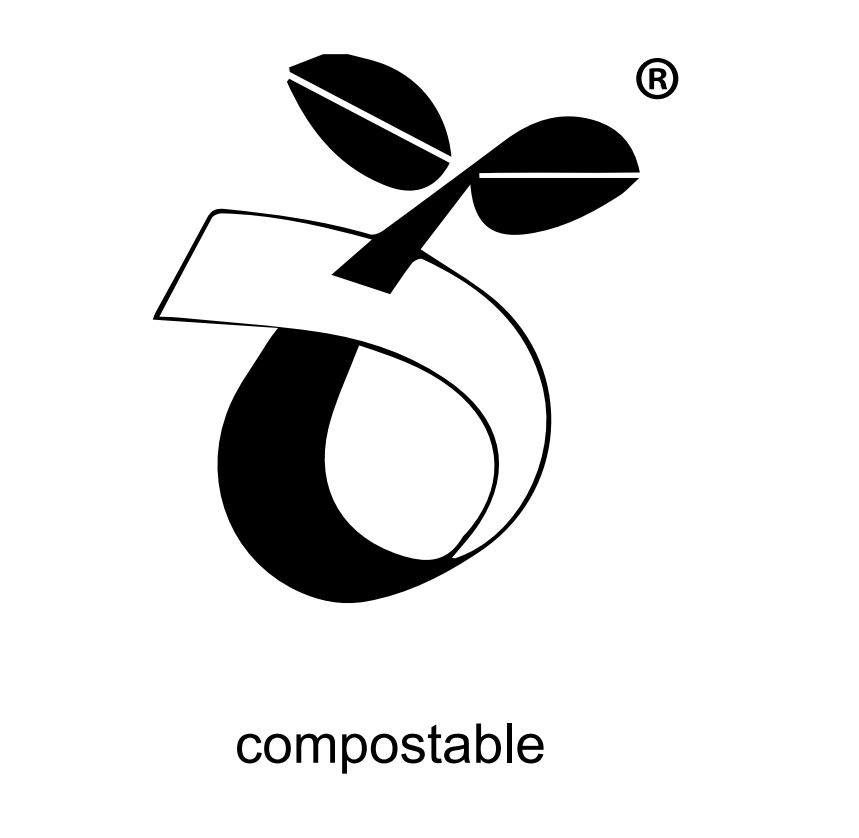
EN13432:
EN13432 is a European standard that defines the criteria for packaging recoverable through composting and biodegradation. It provides specific requirements for packaging materials, including plastics, to be considered biodegradable and compostable.
The EN 13432 certificate is issued to products that meet the requirements outlined in this standard. It confirms that a product, such as a plastic bag, has undergone testing and has been determined to be compostable and environmentally friendly.
To obtain the EN 13432 certificate, a plastic bag must meet several criteria, including:
1. Biodegradability: The bag should biodegrade under specific composting conditions, breaking down into natural elements that are not visually distinguishable.
2. Disintegration: The bag should disintegrate into small pieces in a composting environment within a specified timeframe.
3. Ecotoxicity: The bag should not release toxic substances in quantities that could harm the environment during composting.
4. Compost Quality: The resulting compost should not have a negative impact on the quality of the compost or inhibit plant growth.
The EN 13432 certificate provides assurance that a plastic bag has undergone rigorous testing and meets the necessary requirements for compostability. It allows consumers and businesses to identify products that are suitable for composting and align with sustainability goals.
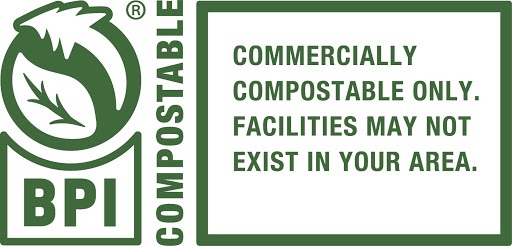
BPI Certified Compostable:
The BPI (Biodegradable Products Institute) certificate is issued by the Biodegradable Products Institute, an independent certification organization based in North America. The BPI certification verifies that a product, including plastic bags, meets specific standards for compostability.
The BPI certificate confirms that a product has undergone testing and meets the criteria outlined by the ASTM (American Society for Testing and Materials) standards, specifically ASTM D6400 or ASTM D6868, for compostability. These standards define the requirements for the biodegradability and disintegration of materials in a composting environment.
To obtain the BPI certification, a plastic bag must demonstrate the following:
1. Biodegradation: The bag should biodegrade under controlled composting conditions, breaking down into natural elements.
2. Disintegration: The bag should disintegrate into small fragments within a specified timeframe.
3. Ecotoxicity: The bag should not release toxic substances in quantities that could harm the environment during composting.
The BPI certification provides assurance to consumers and businesses that a product meets the necessary standards for compostability. Products carrying the BPI Certified Compostable logo have undergone rigorous testing and are suitable for composting in commercial composting facilities. The certification helps in identifying products that align with sustainable waste management practices.
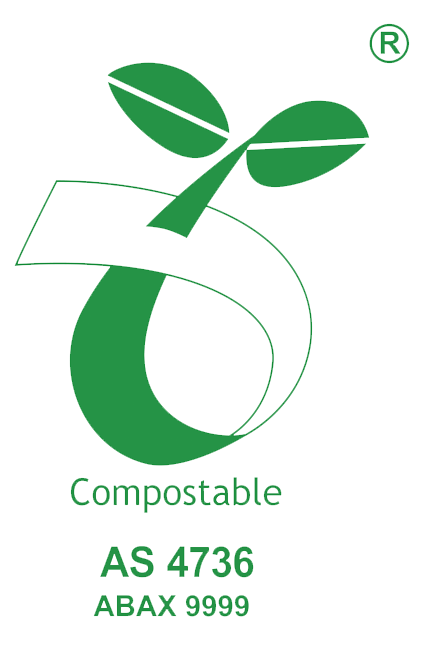
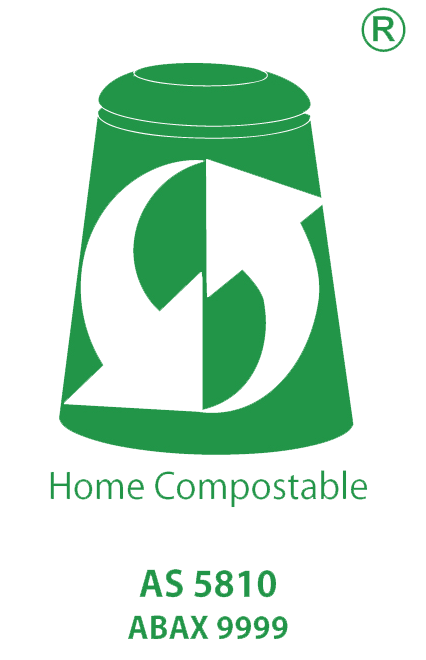
Australasian Bioplastics Association (ABA) certification:
The Australasian Bioplastics Association (ABA) certification, also known as the ABA compostable logo, is specific to the Australasian region, which includes Australia and New Zealand. The ABA certification is used to indicate that a product, including plastic bags, meets the standards for compostability outlined by the ABA.
The ABA certification verifies that a product has undergone testing and meets the requirements specified in the Australian Standards AS 4736 and AS 5810. These standards outline the criteria for compostability, including biodegradation and ecotoxicity, in the Australasian context.
To obtain the ABA certification, a plastic bag must demonstrate the following:
1. Biodegradation: The bag should biodegrade under specific composting conditions, breaking down into natural elements within a defined timeframe.
2. Disintegration: The bag should disintegrate into small fragments within a specified timeframe.
3. Ecotoxicity: The bag should not release toxic substances in quantities that could harm the environment during composting.
The ABA certification provides assurance to consumers and businesses in the Australasian region that a product meets the necessary standards for compostability. Products carrying the ABA compostable logo are suitable for composting in commercial composting facilities in Australia and New Zealand.
It's important to note that certification requirements and logos can vary by country or region. When selecting biodegradable plastic bags, it is recommended to look for certifications that align with the standards and regulations applicable in your specific area.

